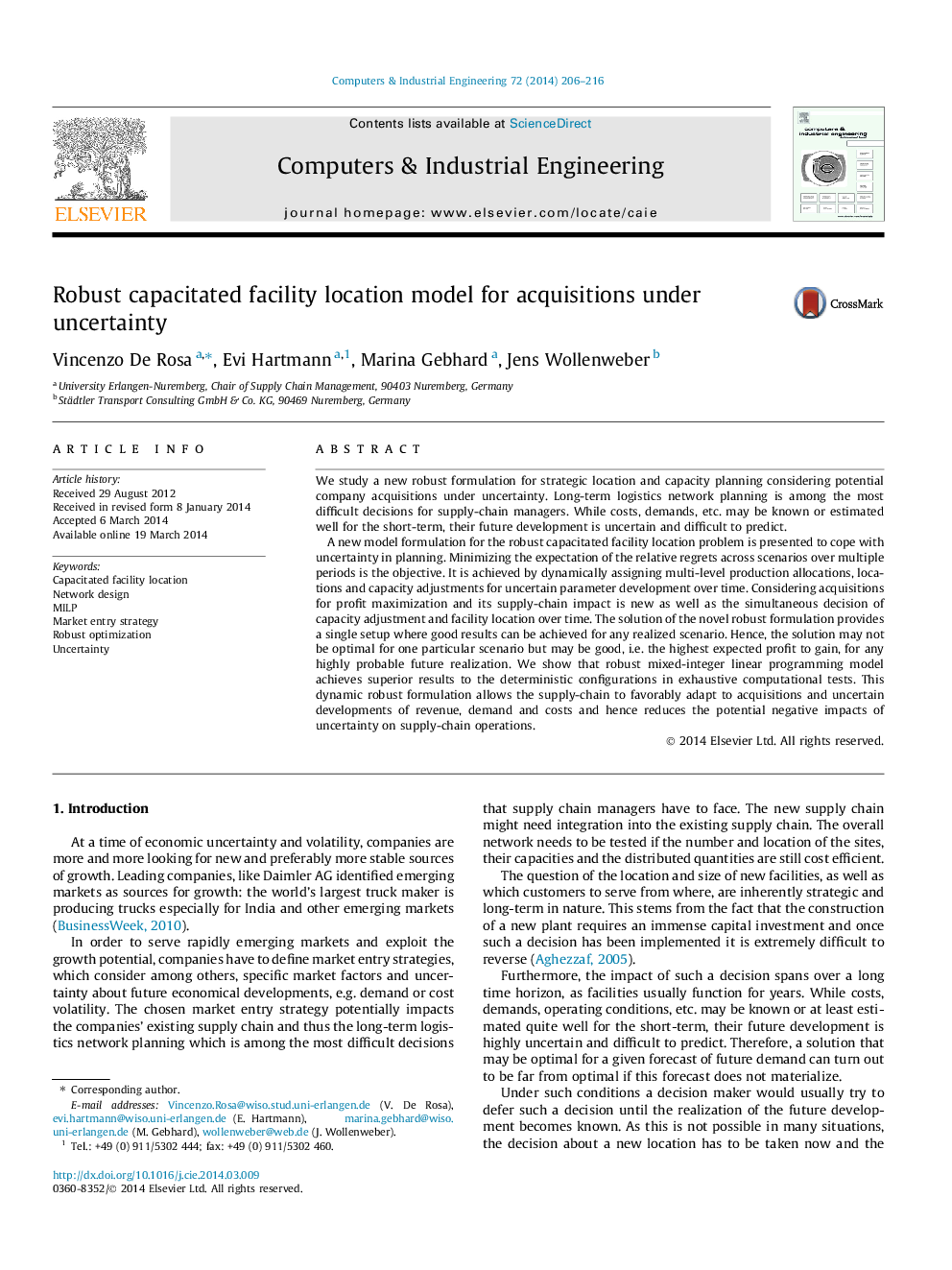| Article ID | Journal | Published Year | Pages | File Type |
|---|---|---|---|---|
| 1134203 | Computers & Industrial Engineering | 2014 | 11 Pages |
•Integrated strategic capacity, facility location and distribution allocation planning.•Dynamic models for acquisition decisions and forward-oriented flow of goods.•Novel robust model formulation “Robust Expected Relative Regret model”.•Robust solution for supply chains under uncertainty and considering acquisitions.•Superior results of robust model in exhaustive computational experiment.
We study a new robust formulation for strategic location and capacity planning considering potential company acquisitions under uncertainty. Long-term logistics network planning is among the most difficult decisions for supply-chain managers. While costs, demands, etc. may be known or estimated well for the short-term, their future development is uncertain and difficult to predict.A new model formulation for the robust capacitated facility location problem is presented to cope with uncertainty in planning. Minimizing the expectation of the relative regrets across scenarios over multiple periods is the objective. It is achieved by dynamically assigning multi-level production allocations, locations and capacity adjustments for uncertain parameter development over time. Considering acquisitions for profit maximization and its supply-chain impact is new as well as the simultaneous decision of capacity adjustment and facility location over time. The solution of the novel robust formulation provides a single setup where good results can be achieved for any realized scenario. Hence, the solution may not be optimal for one particular scenario but may be good, i.e. the highest expected profit to gain, for any highly probable future realization. We show that robust mixed-integer linear programming model achieves superior results to the deterministic configurations in exhaustive computational tests. This dynamic robust formulation allows the supply-chain to favorably adapt to acquisitions and uncertain developments of revenue, demand and costs and hence reduces the potential negative impacts of uncertainty on supply-chain operations.
